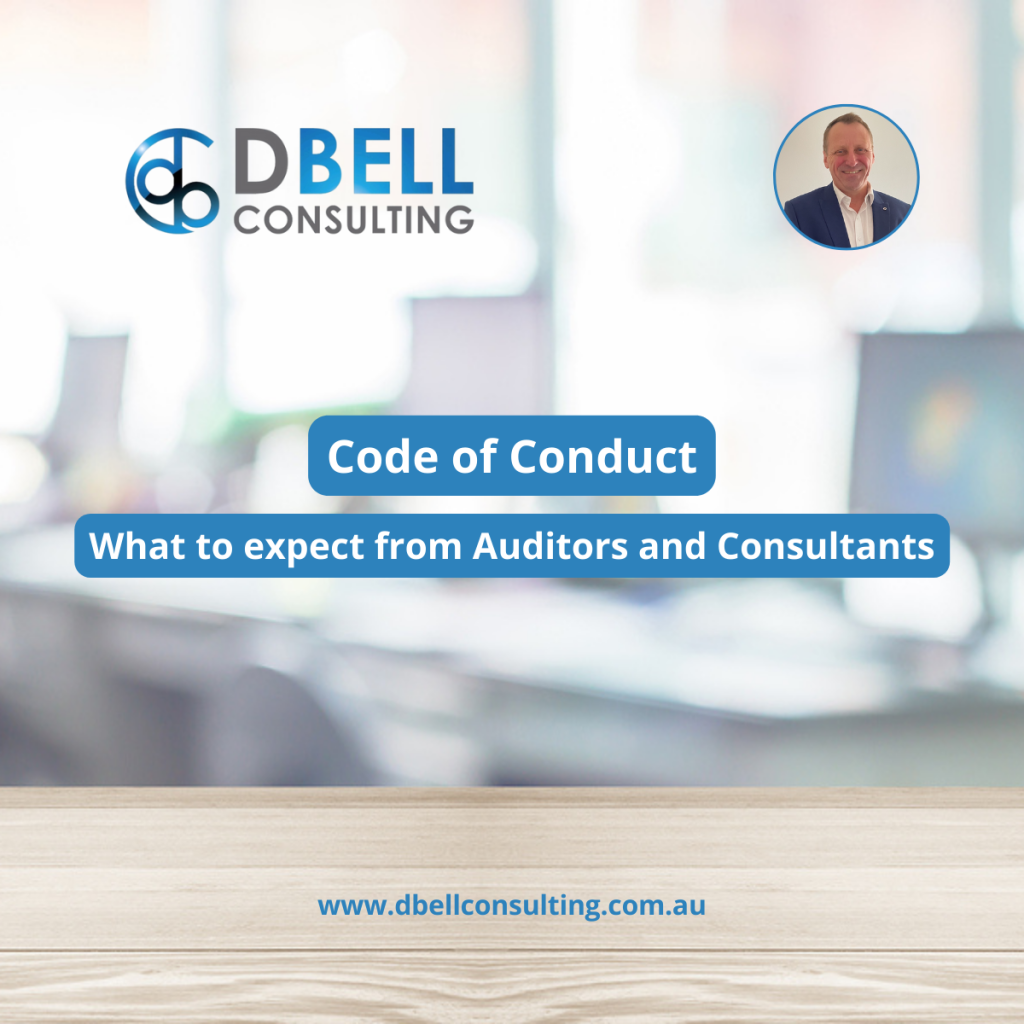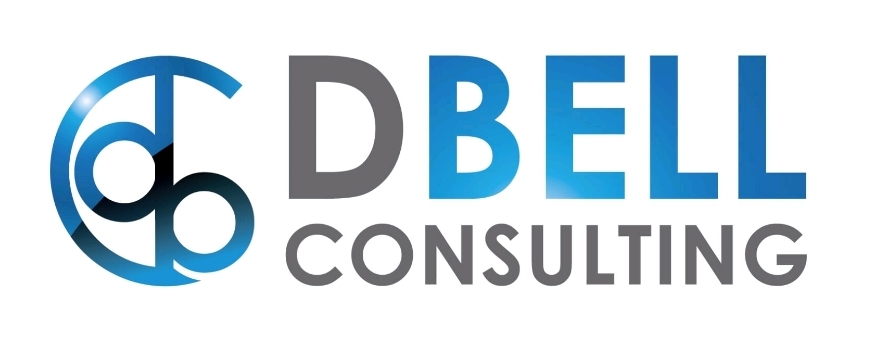Code of Conduct
How we conduct ourselves
Consistent with our values, at DBell Consulting we hold ourselves to a standard and level of accountability that we feel projects the best attributes of providers of management system consulting and auditing services.
This Code of Conduct outlines the expectations of our consultants and auditors in order to achieve the best possible outcome for our clients by promoting ethical behaviour, professionalism, and integrity in the Consulting and Auditing profession.

Standards and Expectations of Consultants:
- System Development: We will assist our clients in developing customised management systems that provide a robust framework for operations and continual improvement.
- Conformity: We ensure that management systems fulfil the requirements as documented in the reference standards (as applicable).
- Alignment: We will work with our clients to develop management systems that align with the client’s operational processes.
- Audit Support: We will support and guide our clients as required to address any nonconformities or improvement opportunities identified by themselves, their customers, auditing bodies and other interested parties.
Standards and Expectations of Auditors:
- Objective Assessment: Auditors will undertake objective (not subjective) assessments of management systems and their processes against the specific requirements documented in relevant standards. Objective means making an unbiased, balanced observation based on facts that can be verified. Subjective means making assumptions, judgements or interpretations based on personal opinions (for example, how the Auditor may structure a system if they were the Consultant), or making statements without verifiable facts.
- Independence: Auditors will maintain independence and objectivity in assessments and recommendations.
- Conflicts: Auditors will avoid any conflicts of interest, preconceptions, views about system requirements that aren’t mandated by applicable standards, or biases that could compromise objective assessment.
- Nonconformities: Auditors will raise nonconformities where there is a demonstrated failure to address the requirements of applicable standards or compliance sources. In raising nonconformities, reference will be made to associated standards and compliance sources, and will outline the degree to which the requirement was deficient.
- Value-Add: Whilst the primary role of the Auditor is to assess conformity against a specified requirement, where appropriate, recommendations for improvement can be provided insofar as they do not result in the provision of consulting services that conflict with the Auditors work scope and independence.
- Representation: For Auditors that also works as Consultants, the Auditor will refrain from representing their services in a consulting capacity.
- Differing Systems: Management System standards specify What needs to be done as opposed to How it needs to be done. This means that Management Systems will differ based on the organisation’s product and service offerings, size, operating environment, objectives, and technological capabilities, but still meet requirements of the standards.
Standards and Expectations of both Auditors and Consultants:
- Professional Competence: Our people will endeavour to stay updated with your field’s latest knowledge, standards, and practices. We will continuously develop our skills and expertise to deliver high-quality services.
- Confidentiality: We will treat all client information as confidential and respect the privacy of individuals and organisations. We will obtain the necessary permissions before disclosing any sensitive information.
- Professionalism: Our people will professionally conduct themselves, and will show respect, courtesy, and fairness to clients, colleagues, and other stakeholders. We will also uphold the reputation of the consulting and auditing profession and refrain from criticism of other consultants and auditors.
- Transparency and Integrity: We will be transparent in our communication and actions, and will provide accurate, truthful, and unbiased information to clients, avoiding misrepresentation or misleading statements.
- Compliance with Laws and Regulations: We will comply with applicable laws, regulations, and professional standards relevant to our field. This will extend to the delivery of consulting and auditing practices that align with legal and ethical requirements.
- Conflict Resolution: Conflicts or disputes will be managed with professionalism and fairness. We will strive to find mutually acceptable resolutions and maintain open lines of communication.
- Continuous Improvement: We commit to continuous professional development and improvement. Our people will seek feedback, learn from experience, and will enhance their skills and knowledge to deliver better outcomes.
At DBell Consulting, we commit to this Code of Conduct, with the intent that we act in the best interests of our clients, and to maintain the integrity of the Consulting and Auditing profession.
Dean Bell
Director and Principal Consultant
